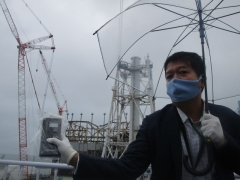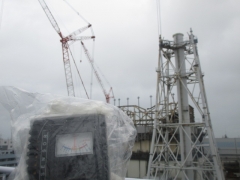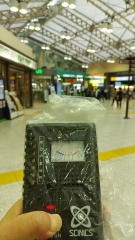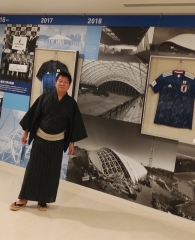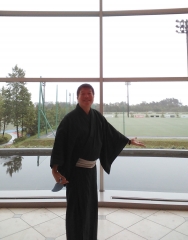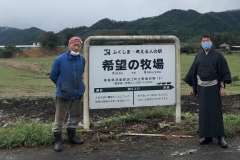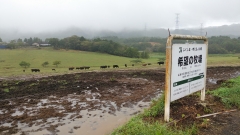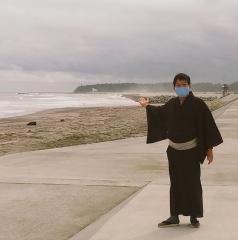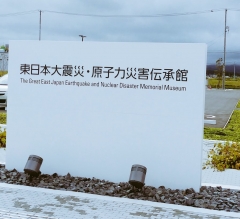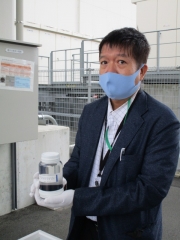25 October 2020
Visited crippled Fukushima Daiichi Nuclear plants in process of abandonment: My Dark Tour Report
Last September I visited Fukushima Daiichi Nuclear Power plants being in the process of abandonment. 9 and half years ago, diesel generator for emergency that had run 4 of 6 plants were destroyed by tsunami and released massive amount of radioactive to surrounding area in Fukushima prefecture, located about 200 kilometer away from Tokyo. What happened was inside these reactors, nuclear fuels lost coolants and melted and then hydrogen was touched with oxygen of air, that caused explosion.
I joined two-day tour to the Fukushima nuclear plants and its nearby area. On the first day, my tour group was escorted by workers of TEPCO, which is responsible for the accident and current abandonment, to the site.
Surprisingly, visitors were not required to wear protective suit to enter the site because most of the sites are already cleaned up. Even workers there do not need to wear ones.
I could bring my own radioactive counter to back side of the plants. The photo was just taken behind the No.1 plant which exploded first followed by No.3, No. 4 and No.2 explosions. All of the crippled 4 plants (No.1 to 4) were capped but nuclear debris are still inside the reactors and planned to take out a few years later.
Compared to the level measured in Tokyo (photo below), it was detected extremely high level, over 80 micro SV.
That night we stayed at J Village sports athletes accommodation and training facility located 20 km away from the site, in which TEPCO and Japan’s defense force used during the crisis. Now the facility is back to normal as had been before the disaster.
Last year some foreign Rugby teams used the facility during the Rugby World Cup tournament. It has a hotel-like accommodation and several field grounds for soccer or Rugby. Hotel room was cozy with a shower room. But the hotel has nice view big communal bathroom on top floor.
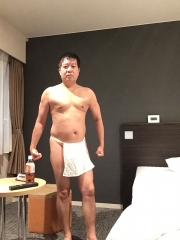
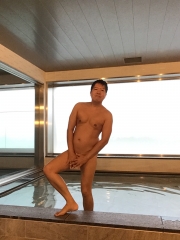
Next day we visited the cattle farm named Kibo no Bokujo (The Cattle farm of Hope) of more than 200 oxen abandoned after the disaster. It is located in Namie town, 10 km northwest of the nuclear plant site. The owner of the farm, Mr. Yoshizawa we met said he takes care of the abandoned oxen even the government instructed him to kill them. The farmland is enclosed by high-voltage electric wire to prevent oxen from escaping. Before the accident, Fukushima was known as one of greatest breeding place for oxen that had produced delicious beef.
He said he wanted to keep them until they naturally die to symbolise the responsibility of humankind who breed them and established nuclear power plants that affected their lives.
He gets no income but pays annual cost of more than 10 million yen (around 100 thousand Euro or US$ worth). All the cattle are castrated so no more offspring will be created. The cost was funded mostly by donation.
This tour is not only for learning about the nuclear accident but the big earthquake and tsunami disaster. Over 20000 people in Northeast region Japan died or are still missing by that.
On the sea coast, 6 km away from Fukushima Daiichi plants there still remains of what happened in tsunami hit residential area.
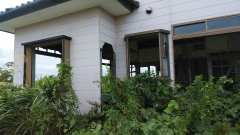
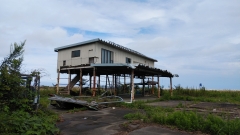
The new museum in memorial of the disaster and nuclear accident was established and opened in September.
However, the disaster never ended. As fore-mentioned, the abandonment is still halfway and might even take another decades to finish.
Just recently TEPCO announced it will release processed contaminated water in which hazardous nuclear substances was filtered out but still tritium is contained to Pacific Ocean. They claim it is not hazardous to environment because tritium has very low-level of radiation, which experts claim outrageously wrong.
When I visited the crippled nuclear plants, I was requested to take a photo with a water bottle that contained tritium to appeal it is safe.
Well, it seems we have to continue fight against the nuclear industry.
If you are interested in the tour, contact me through this blog or twitter. I can refer you to the travel agent. The cost is around 45000 yen (400 Euro or US$). Dark tour or I would say, good Study tour for you.
13:02 Posted in Ecology, Health, Japan News, Science, Society, Travel | Permalink | Comments (0) | Tags: nuclear power, fukushima, trip






